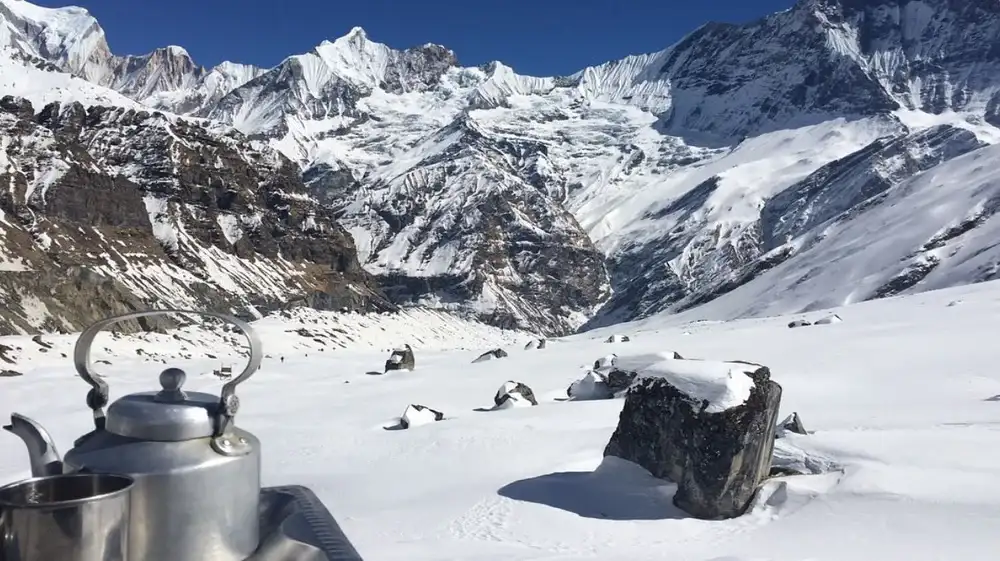If you visit some of outdoors forums sites, you will notice various claims about effects of drinking tea at altitude, and some of them are contradictory. So what is the truth? Keep reading.
In one source I read that “coffee, tea, soda, sugary drinks, and even juice can leach fluids from your body and can cause dehydration.” My focus here is on tea only.
But is this really so? I was searching for some scientific evidence, and could not find any. In fact. it turns out that this statement does not hold, at least when this is about consuming tea.

There was a study performed at a group at Everest base camp, and this means 5345 meters of elevation, with a group that included both male and female participants.
This was a set of two experiments, each 24 hours long. One included tea as the only fluid intake. The other was a no-tea experiment. In both cases, there were no alcoholic drinks.
So they measured the mean amount of fluid ingested and also the mean urine volume. In both cases urine volume was similar. So they found no difference in urine stimulated as a result of the tea consumption.
They also checked some other parameters before and after, like urine color, urine specific gravity, and urine electrolyte balance. No difference was found due to dietary intervention in any of two conditions.

However, they found something. There was a difference in mood. Namely, subjects reported reduced fatigue when tea was included in the diet.
You can read all details in this reference entitled The effect of drinking tea at high altitude on hydration status and mood.
So my overall conclusion is as follows. There is no scientific evidence that tea acts as a diuretic when it is consumed through natural routes of ingestion. In other words, it will hydrate you just like ordinary water.
If drinking tea is your daily routine, it would be unreasonable to stop drinking it when you are in the mountains. As you know, black tea in particular can contain caffeine that may have positive effects on your performance.
But I am not a medical doctor, and this is up to you. There are some really contradictory statements about drinking tea in general.
So I have seen a video by someone who is with a medical background who speaks about the following issues. In certain teas there is tannin that binds iron, zinc, and calcium, and it also blocks the absorption of vitamin B1.
Some types of tea (and from certain countries) may contain metals and also arsenic and illegal pesticides. Tea bags can be bleached with chlorine. The point is that it is good to know the origin of the tea and avoid some.
I read on Healthline that many types of tea contain caffeine which is indeed a diuretic compound. But its content is very low, so if you drink a normal amount of tea, it is unlikely that it will dehydrate you. Now, what is normal? They speak about 4-8 cups of tea.
Apparently, tea should not be consumed on an empty stomach, here is why:
As for possible diuresis which is behind the topic discussed here, there is something what is called the altitude-induced diuresis, but this is due to different reasons. This is just the fact that some people tend to urinate more during an initial phase of altitude acclimatization.
For more texts of this type please check under the category FAQs here in the site. Subscribe to my weakly newsletter and stay informed, the subscription form is given below. Thank you for reading and have a nice day.
Leave a Reply